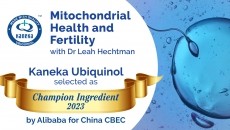Weight management and multi-carotenoids: PhytoGaia seeks joint research in uncovering more evidence

The Malaysia-headquartered supplier firm specialises in palm-based products, such as natural palm-mixed carotene complex consisting of both alpha- and beta- carotenes trademarked CaroGaiaTM.
Its other flagship ingredients include full spectrum tocotrienols / tocopherol complex TocoGaiaTM, and natural plant squalene with tocotrienol / tocopherol complex STGaiaTM.
So far, mixed carotenes are sought after for its vitamin A benefits and for supporting eye and skin health.
However, there is emerging evidence on its use for weight management, said the company.
Scientific evidence
An example is a China cross-sectional study published in the Journal of Nutritional Science and Vitaminology last December.
The study looked at the associations between the intake of total carotenoids, alpha-carotene, beta-carotene, beta-cryptoxanthin, lycopene, lutein plus zeazanthin and the risk of obesity in adults.
A total of 25,868 adults aged 20 and above were enrolled in the study.
It reported that carotenoids intake amounts were inversely associated with the risk of obesity. Specifically, dietary intakes of total multi carotenoids and lutein+zeaxanthin at 2400 ug/1000 kcal/d and 80 ug/1000 kcal/d, respectively, have a significant protective impact against obesity.
Another study, an RCT, published in The Journal of Clinical Endocrinology and Metabolism in 2017, looked at the effects of alpha-carotene, beta-carotene, lutein, zeaxanthin, lycopene, astaxanthin, and gamma-tocopherol versus placebo on abdominal fat accrual, BMI z-score, adipokines, and markers of insulin resistance in children aged eight to 11.
It concluded that an increase in serum beta-carotene, high-molecular-weight adiponectin (HMW-ADI), and a concomitant decrease in the accrual of abdominal subcutaneous adipose tissue in obese children taking carotenoid supplementation.
Speaking to NutraIngredients-Asia, Bryan See, vice president, PhytoGaia, pointed out that obesity was a growing issue across the world.
This is especially the case in Malaysia, where the company is based. Prevalence of overweight among Malaysian adults was 50.1 per cent, according to an analysis of the National Health and Morbidity Survey 2019.
With growing evidence showing the effects of multi-carotenoids on weight management, the company has expressed interest in exploring this space.
Plans for joint RCT
One of the plans is to conduct joint research with suppliers of lycopene, lutein, and zeazanthin to create a formulation that also contains the firm’s alpha- and beta-carotene and carry out a clinical trial to test out its effects on obesity.
“We are looking for partners to carry out a study together because we do not supply the other carotenoids: lutein, zeaxanthin, and lycopene but we have the palm-carotenes.
“Our interest is to carry out a multi-carotenoid study based on what has been published, formulate a product, and conduct joint research – a RCT involving subjects who are on an adjusted lifestyle, such as a healthy diet and exercise and one group without and one group on the intervention and the other on placebo,” See said.
Study endpoints include how natural mixed carotenes supplementation could affect the reduction of body weight, liver fat, and body metabolism etc.
He believes this would be a promising and worthwhile endeavour, since obesity is a growing issue that could be prevented.
“Based on the existing literature and knowing that obesity is a growing issue that is preventable at the same time, I think it is worthy and promising to carry out research on subjects on a healthy diet and exercise and the potential effects of carotenes supplementation versus that of placebo.”
Current findings showed that the mechanism of action is related to adipocytes, added Dr. Ariati Aris, scientific affairs specialist, PhytoGaia.
“The multi-carotenes could lower the risk of obesity because the process is related to the adipocytes. For example, it decreases obesity by promoting fatty acid oxidation in adipocytes,” she explained.
The association between metabolic health and phytonutrients is gaining traction.
Plant-based nutrition firm eimele told us earlier that phytonutrients is becoming the ‘it’ word and consumers are starting to understand that it is beneficial for combating suboptimal health issues. It believes that the use of phytonutrients for metabolic health is a trend for this year.



















